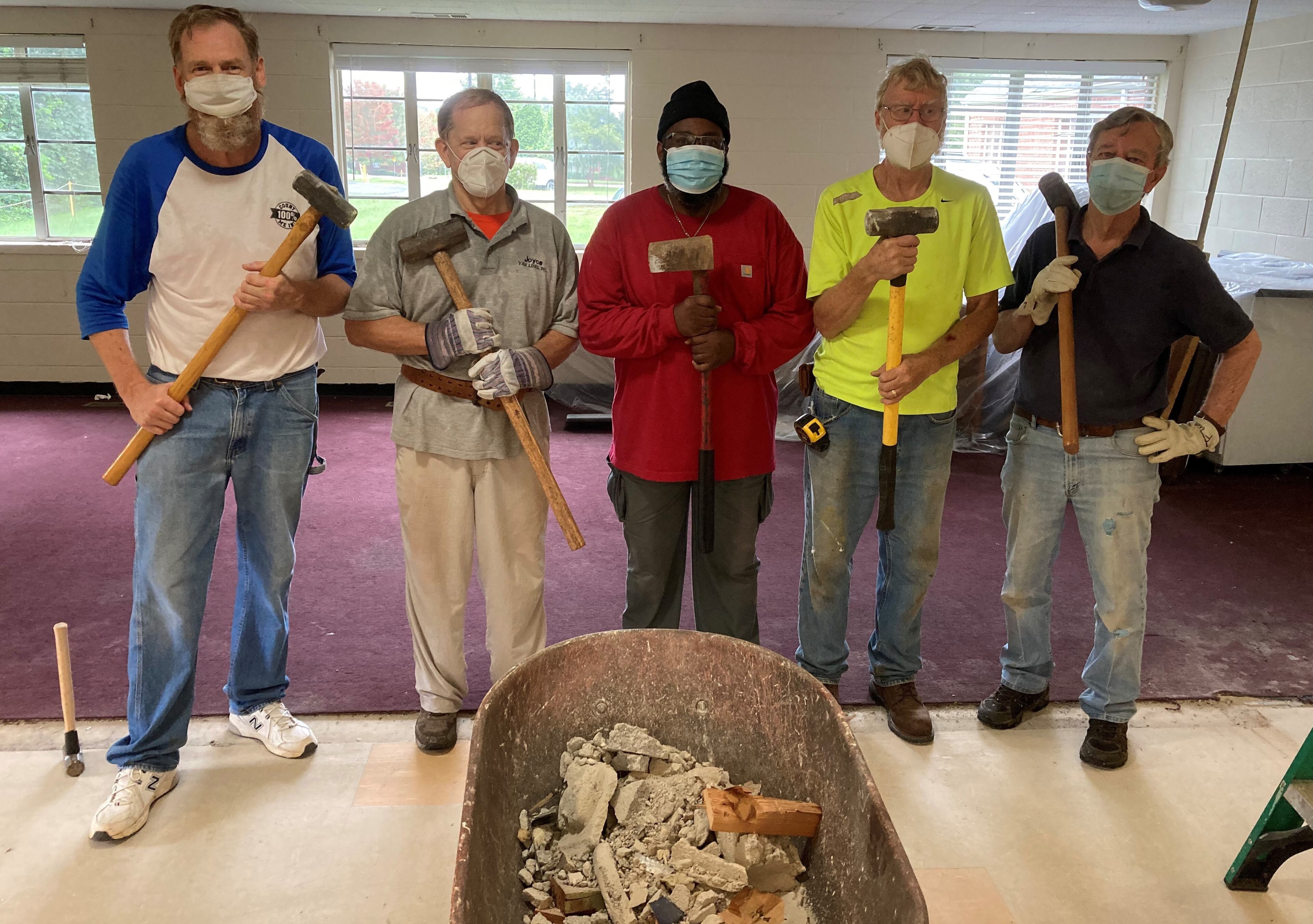OPINION: An arranged friendship, then deepening fellowship, faith

They say from the moment they arrived at Saint Luke’s and Dodd-Sterling, their congregations insisted they become friends.
And so having no choice in the matter, the Rev. David Lower, pastor at Saint Luke’s Presbyterian Church, reached out to the Rev. Eric Powell, pastor at Dodd-Sterling United Methodist Church.
“Can we meet and talk?” he asked him.
Days later over plates of bacon and eggs at a local IHOP, the two men introduced themselves. For the next three hours, they talked about the blessing of the long relationship between their two congregations, all the while imagining what their friendship might become, what things their congregations might do to deepen that relationship.
If the old adage that opposites attract holds true, there was little doubt that together they could, in fact, do a lot of good.
The relationship between Saint Luke’s and Dodd-Sterling goes back more than two decades when they began building Habitat for Humanity houses together. Their congregations insisted the two of them maintain that bond.
That’s the first thing that made this a decidedly odd tale. The second was that the two congregations, indeed their pastors, could not have been more different.
Saint Luke’s, located in Dunwoody, numbers about 750 mostly affluent white members. Dodd-Sterling, located in southeast Atlanta, has some 75 members, all of whom are Black and as Powell put it “po’.”
Lower, 46, a former IT professional, grew up in Atlanta’s Morningside neighborhood. He has been in ministry since 2008.
Powell, 66, is an Army retiree who was born and raised in Chicago. Although licensed and ordained in 1976 in the Baptist church, he has been a United Methodist for the past 15 years.
Both were named pastors of their congregations in 2016.
Their arranged friendship, Powell said, “was a loving recommendation, an invitation of endearment.”
Whatever it was, it was happening two months after their arrival and during one of the most contentious times in our nation’s history, marked by battles over religious freedom, immigration, and racial injustice.
At Saint Luke’s and Dodd-Sterling, it looked like God was trying to write a different story, one that promised, at least for them, to address the centuries-old divide happening on Sunday mornings and foster racial reconciliation in the process.
In short order, the ministers donned their robes and, in some cases, rolled up their sleeves and went to work alongside their members. They even traded pulpits with Lower preaching at Dodd-Sterling and Powell delivering the word at Saint Luke’s.
On other Sundays, the congregations worshipped together with their pastors delivering a collaborative homily, what they call tag-team sermons.
What has transpired over the past four years, as one member described it to me, is “a wonderful story” of how they came together to meet the challenges of the moment.

Powell recalled the time he wanted to dismantle a wall at Dodd-Sterling to increase seating in the church’s fellowship hall. One call to Lower and he had a team of architects, contractors and other volunteers from Saint Luke’s at his disposal.
“I got as excited as a 6-year-old boy in a candy store,” Powell recalled recently.
The wall came down and in another instance a room that had become uninhabitable was converted into an office.
Powell would later explore that experience in a sermon he titled “The wall must fall.”
Just as the walls of Jericho came tumbling down, Powell encouraged both Saint Luke’s and Dodd-Sterling to commit to the work of dismantling the walls of prejudice, insecurity and racial injustice in their communities and in this nation.
Not even COVID-19 has gotten in the way of that or their efforts to help each other or those in their communities who need them.
During the first weeks of the pandemic, members of both churches checked on each other in a virtual prayer breakfast. And when Dodd-Sterling members shared their hopes of meeting the rising demand for food with enough to keep their neighbors fed and safe, Saint Luke’s stepped in to help.
“This is where the presence of God became undeniable,” Lower said. “The prayers and love that day moved members of both churches into action, mobilizing resources and people and connections.”
He called the nonprofit Urban Recipe. It agreed to help.
The food co-op, along with the Atlanta Community Food Bank, provided a biweekly food distribution of about 60 pounds of food to 125 families who otherwise might go hungry, a feat they have been fulfilling since last April.
“It exceeded our wildest dream,” Powell said. “We went into this to provide meat. What came from it was more than what was asked. It became a bounty of food.”
It was a solution that neither congregation could’ve accomplished alone.
“What excites us is it not only crosses ecumenical lines, it crosses racial lines and, in this day and age, that’s significant,” Powell said. “I look at us as being the epitome of we shall overcome. We’re walking hand in hand.”
Both pastors and their congregations are reaping the benefits that come from participating in a relationship based on spirituality, humility, mutuality, and mutual respect.
In short, they are fulfilling Christ’s mandate to love each other as he has loved us, trusting that there is enough to go around for all of us and that living together as brothers and sisters will surely bring blessings not curses.
Find Gracie on Facebook (www.facebook.com/graciestaplesajc/) and Twitter (@GStaples_AJC) or email her at gstaples@ajc.com.

